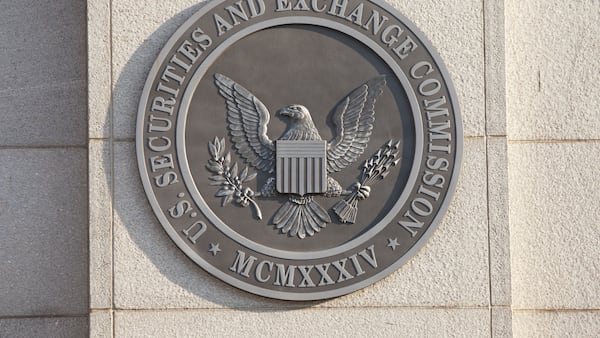- Paxos has settled with the New York Department of Financial Services.
- The company will pay a $26.5 million fine and invest another $22 million in compliance.
- Paxos said the issues, identified in 2023, have been “fully remediated.”
Paxos, a stablecoin issuer that counts PayPal among its clients, settled with the New York Department of Financial services on Thursday over its alleged failure to conduct due diligence on Binance.
Paxos previously issued Binance’s BUSD stablecoin. But the NYDFS ordered the firm to stop minting new BUSD tokens in 2023, citing Binance’s lax approach to geofencing and sanctions control.
The Department also dinged Paxos for its own “deficient compliance program,” which failed to flag “obvious patterns of money laundering” and allowed supposedly questionable clients to open and maintain accounts with the company.
According to the terms of the settlement, Paxos will pay a $26.5 million fine and invest another $22 million in its compliance program.
“Regulated entities must maintain appropriate risk management frameworks that correspond to their business risks, which includes relationships with business partners and third-party vendors,” NYDFS Superintendent Adrienne Harris said in a statement.
In a statement, Paxos said the issues were identified over two-and-a-half years ago and have been “fully remediated.”
“These matters had no impact on customer accounts and there was no consumer harm,” a spokesperson said.
“There are no new claims regarding Paxos’ relationship with Binance or the issuance of BUSD, and Paxos’ other white-labeled stablecoins operate on similar models with different partners and have not faced any regulatory issues.”
Binance trouble
Paxos received an NYDFS charter in 2015. In 2019, it began minting BUSD.
According to the terms of its charter Paxos was supposed to perform regular due diligence on Binance. But an NYDFS investigation found the company was not able to “effectively monitor for significant illicit activity occurring at or through Binance.”
Binance is the world’s largest crypto exchange. US customers were able to use its US subsidiary, but were barred from using the international platform, which was not subject to US regulation.
Nevertheless, Binance did little to stop US customers from accessing the international platform, according to the New York regulator.
Moreover, the regulator found Binance had processed at least $1.6 billion in transactions “involving illicit actors” between 2017 and 2022. It had also processed transactions involving people and companies that had been sanctioned by the US.
Those issues also drew scrutiny from the US Department of Justice and the Securities and Exchange Commission, the US’ top financial regulator.
In 2023, Binance pleaded guilty to facilitating money laundering and agreed to pay $4.3 billion in penalties. Its founder, Changpeng Zhao, was forced to step down as CEO and served a four-month prison sentence.
In 2023, the NYDFS ordered Paxos to stop minting BUSD. According to the regulator, it was the “first orderly winddown of a stablecoin.”
BUSD once had a market value of $23 billion, according to DefiLlama data. An estimated 54 million BUSD tokens are still in circulation.
“Paxos successfully wound down more than $16B in BUSD market cap without the token ever de-pegging which was a testament to the strength of Paxos’ treasury management,” a Paxos spokesperson said.
‘Unsophisticated’
The NYDFS said Paxos’ internal controls were also lacking, citing the company’s “unsophisticated” customer due diligence.
“Customers who shared addresses, corporate documents, beneficial owners, and certain behavioral characteristics indicative of potential illicit coordinated activity were able to open multiple accounts and remain undetected,” the department said.
“Paxos’s deficient transaction monitoring system also prevented the Company from detecting obvious patterns of money laundering.”
Paxos said it has poured “significant resources” into its compliance program.
“No other blockchain and tokenization platform has shown more dedication to seeking oversight and complying with global institutional standards as Paxos has done for over a decade – and we are committed to maintaining that moving forward,” a spokesperson said.
Paxos issues several stablecoins, including its own USDP, Lift Dollar, and PayPal’s PYUSD, the 11th largest stablecoin on the market.
Aleks Gilbert is DL News’ New York-based DeFi correspondent. You can reach him at aleks@dlnews.com.









